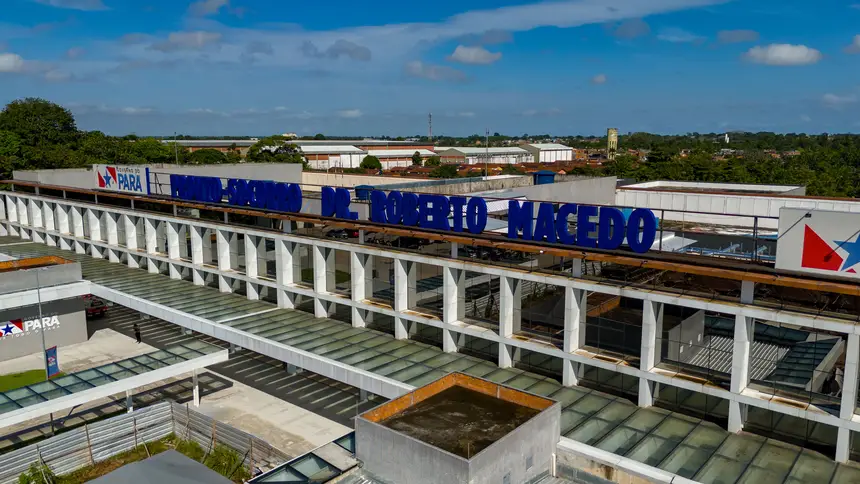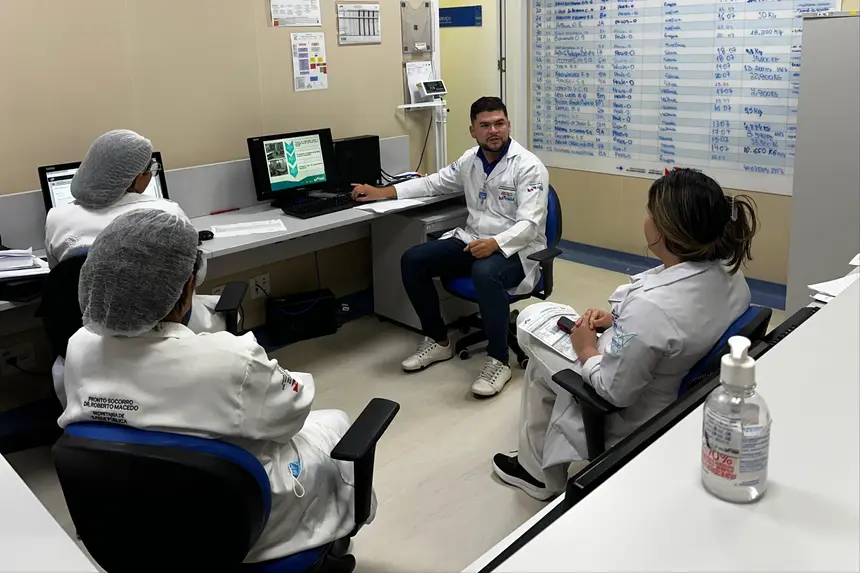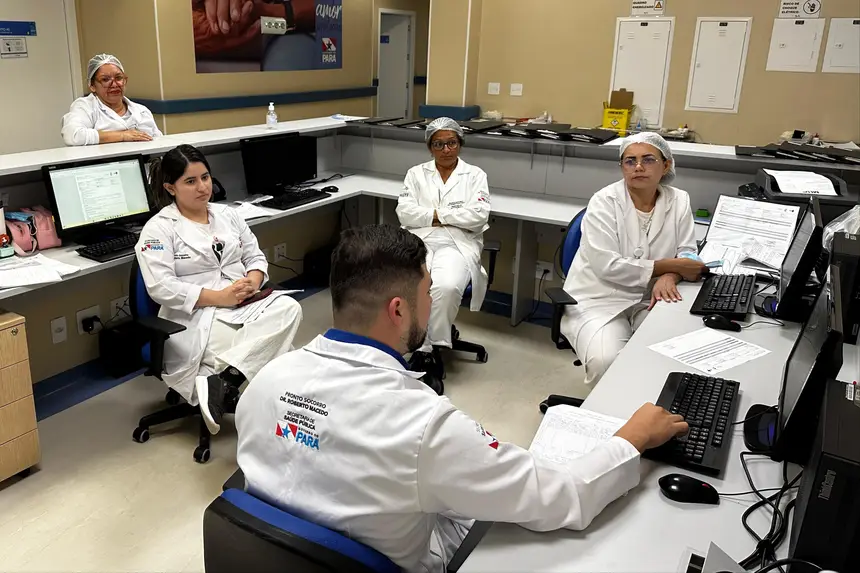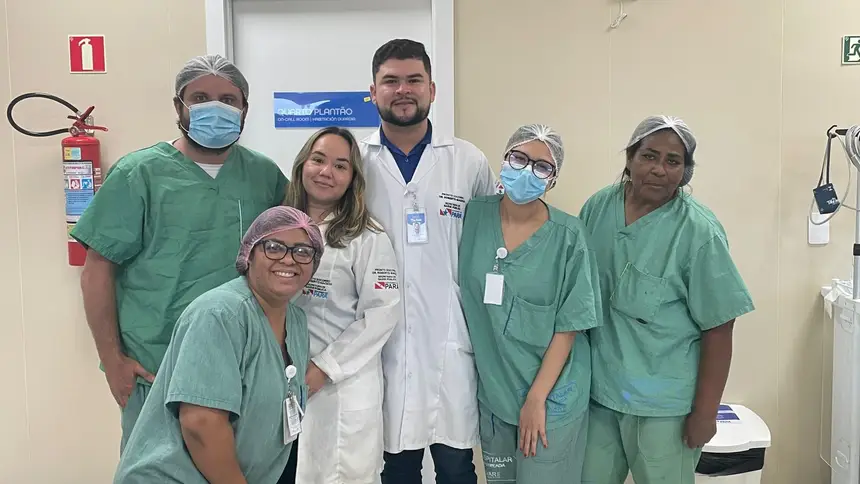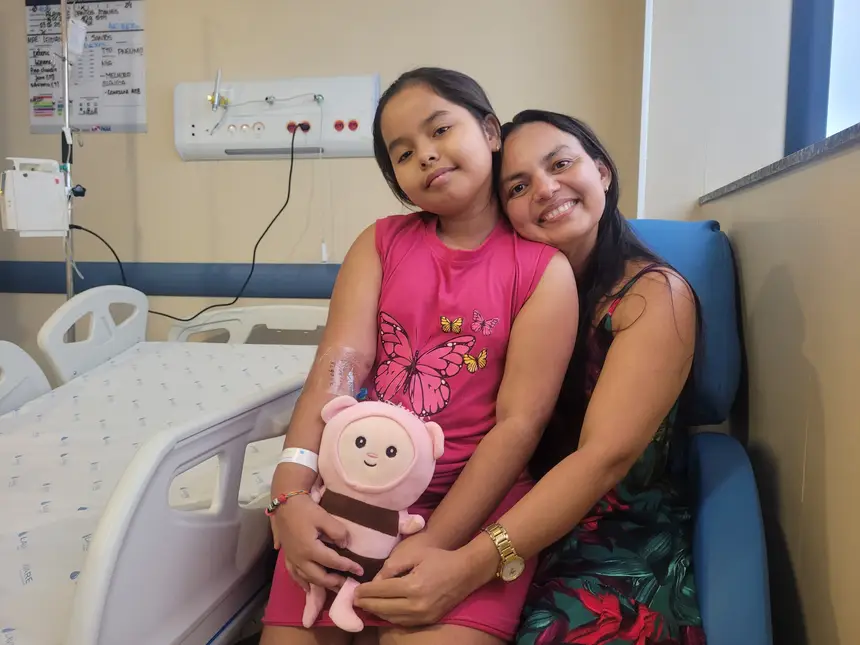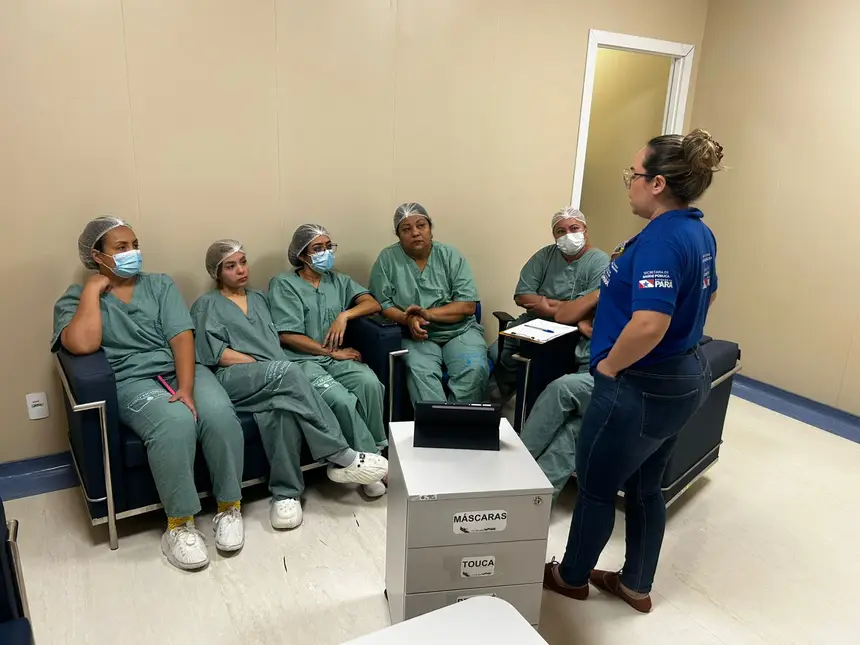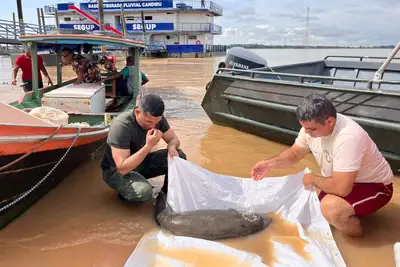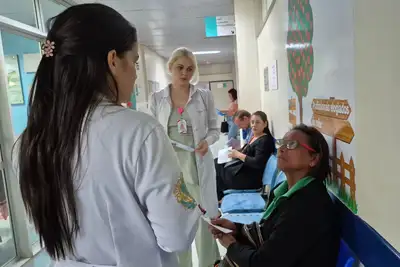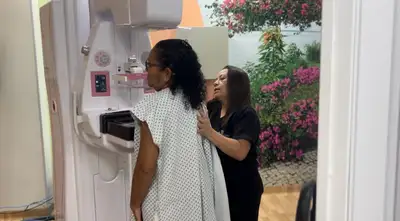PSRM strengthens the safety of care provided with a series of training on safe surgery
Trainings held this week are part of the Government of Pará's strategy to qualify care and reduce risks to the population served at the Dr. Roberto Macedo Emergency Room
To strengthen safety in the care provided to users, the Government of Pará, through the Dr. Roberto Macedo Emergency Room (PSRM), promoted this week a series of trainings focused on Safe Surgery. The initiative is part of the actions of the Patient Quality and Safety Center (NQSP) and reinforces the application of the fourth International Patient Safety Goal, which aims to minimize the risks of adverse events before, during, and after surgical procedures.
Renan Aviz, a nurse from the NQSP and facilitator of the trainings, highlighted that Safe Surgery is a process that goes beyond the Surgical Center. “The surgical patient goes through hospitalization, regulation, surgical center, anesthetic recovery, ICU, or clinic. At each stage, it is necessary to ensure safe and qualified care,” he explained.
Life-saving protocol
Safe assistance is ensured through the use of protocols and checklists that guarantee the correct identification of the patient, the surgical site, the procedure to be performed, infection prevention, and other risks.
“The safe surgery checklist is a communication tool among professionals that strengthens teamwork and prevents failures. The three pauses – before anesthetic induction, before incision, and before leaving the room – ensure that everyone is aligned on the patient's conditions,” detailed Lívia Palheta, coordinator of the NQSP.
About 300 professionals participated in the training. Among them was nursing technician Jonathan Souza, who emphasized the importance of the training. “We learned to identify failures such as identification errors, incorrect use of prophylactic antibiotics, failures in shaving, and surgical marking. The checklist helps prevent these errors even before entering the surgical room,” he stated.
Lidiane Costa Santos, from Abaetetuba, is accompanying her daughter hospitalized with severe pneumonia and pleural effusion, and praised the constant qualification of the team. “I feel safe knowing that the professionals are prepared. The Emergency Room of the government of Pará is a place we will carry in our hearts for the rest of our lives,” she declared.
Planning and continuity of care
Another highlight is the BATMAPA strategy, a meeting between nurses from the Sterilized Materials Center (CME), Internal Regulation Center (NIR), and assistance, which precedes the preparation of the surgical map for the following day. The initiative ensures that all pending issues are resolved, from exams to postoperative planning.
“Goal 4 is a culture of safety that saves lives. The medical record must be complete, with all devices identified, to ensure continuity of care after surgery,” reinforced Renan Aviz.
Quality care
In the first half of 2025, PSRM performed 64,340 urgent and emergency care services for adult and pediatric patients. “The high demand requires agile and assertive professionals. Therefore, we continuously invest in the qualification of the team, focusing on the safety and quality of the care provided,” highlighted Carlos Vinícius Ribeiro Quadros, general director of PSRM.
Structure and specialties - PSRM has 119 beds, distributed among adult and pediatric emergency care sectors, hospitalization, and Intensive Care Units (ICUs). The unit also has six fully equipped surgical rooms, capable of performing medium and high complexity procedures, including minimally invasive video surgeries, which accelerate patients' recovery time.
Managed by the Acqua Institute, in partnership with the State Department of Public Health (Sespa), the hospital is one of the pillars of the restructuring of public health promoted by the Government of Pará.


